The online thesis defenses of postgraduate students who are scheduled to graduate from the Academy of Arts & Design, Tsinghua University (AADTHU) in June 2020 took place from May 7 through May 12, 2020. The departments of the Academy, including Textile & Fashion Design, Ceramic Design, Visual Communication, Environmental Design, Industrial Design, Arts & Crafts, Information Art & Design, Painting, Sculpture, and Art & History, Basic Teaching & Research Group, and Science Popularization Creativity and Design Postgraduate Program organized 39 video conferences for master's thesis defenses, and 171 candidates successfully passed the defenses. All the online defenses were successfully completed in an orderly manner in accordance with the prescribed procedures. They evidence the fruitful results of the Academy's online education during the COVID-19 epidemic and showcase a new form of thesis defense, providing a new possibility for future teaching and research.
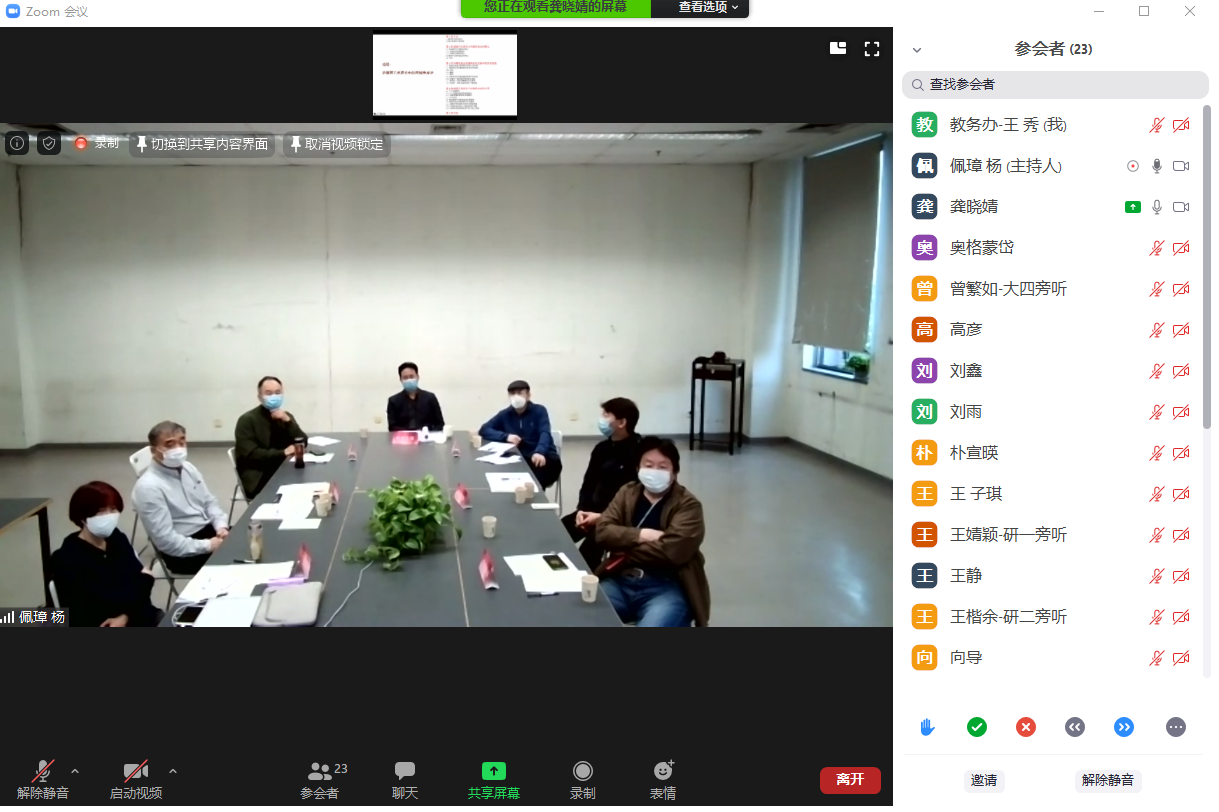
Virtual defense of postgraduate students, Department of Arts and Crafts
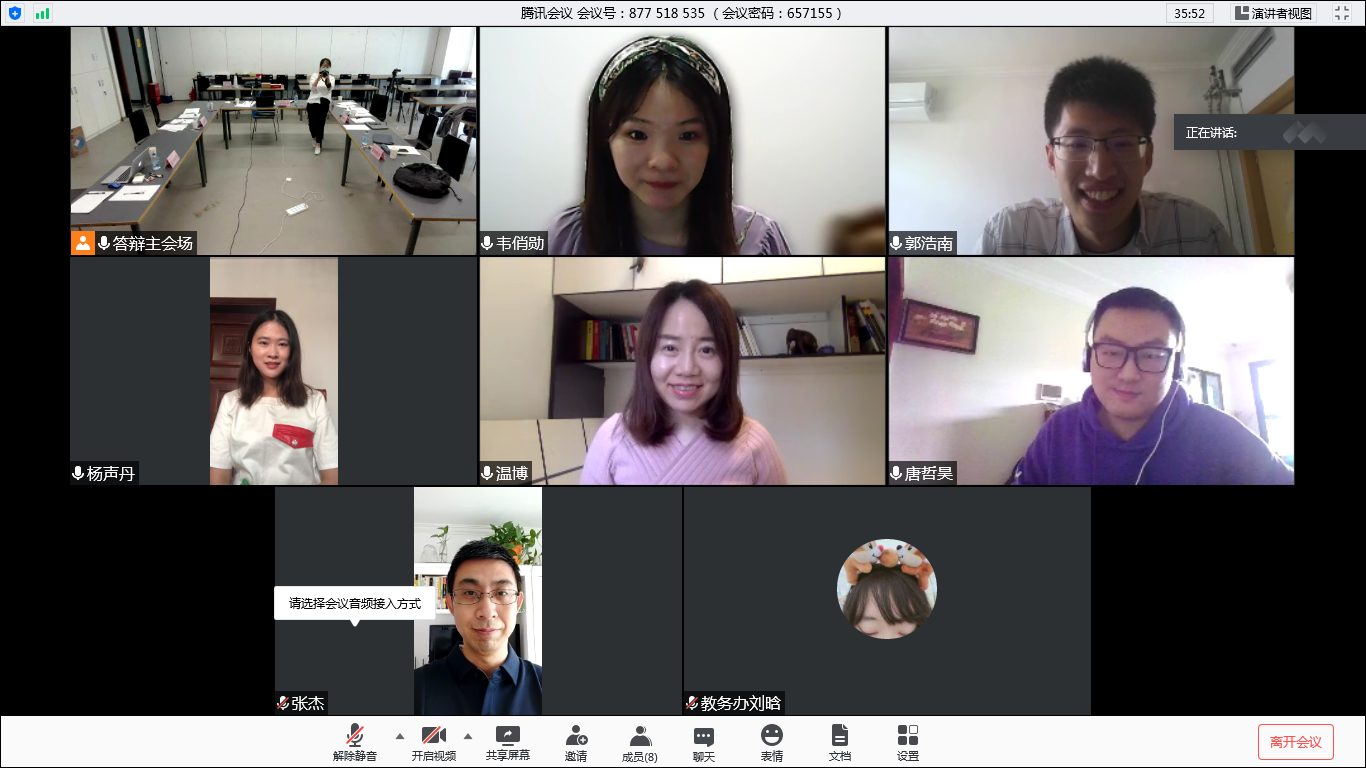
Virtual defense of postgraduate students, Department of Art & History
As a result of COVID-19, all thesis defenses of postgraduate students this year took place online. The chair, members, and the secretary of the defense committee gathered on campus to conduct the defenses and votes were cast on the spot. The online defenses followed the same key procedures and academic requirements for in-person defenses.
On the day of the defense, the participating postgraduate students from China, Malaysia, South Korea and other countries defended their theses via Tencent Meeting or ZOOM in front of the master's thesis committee, who gathered at the Academy of Fine Arts of Tsinghua University. They presented their findings and answered the questions raised by the committee members. The defense committee then voted for passage anonymously. The secretary of defense and secretaries of departments assisted with all administrative procedures of the online defense.
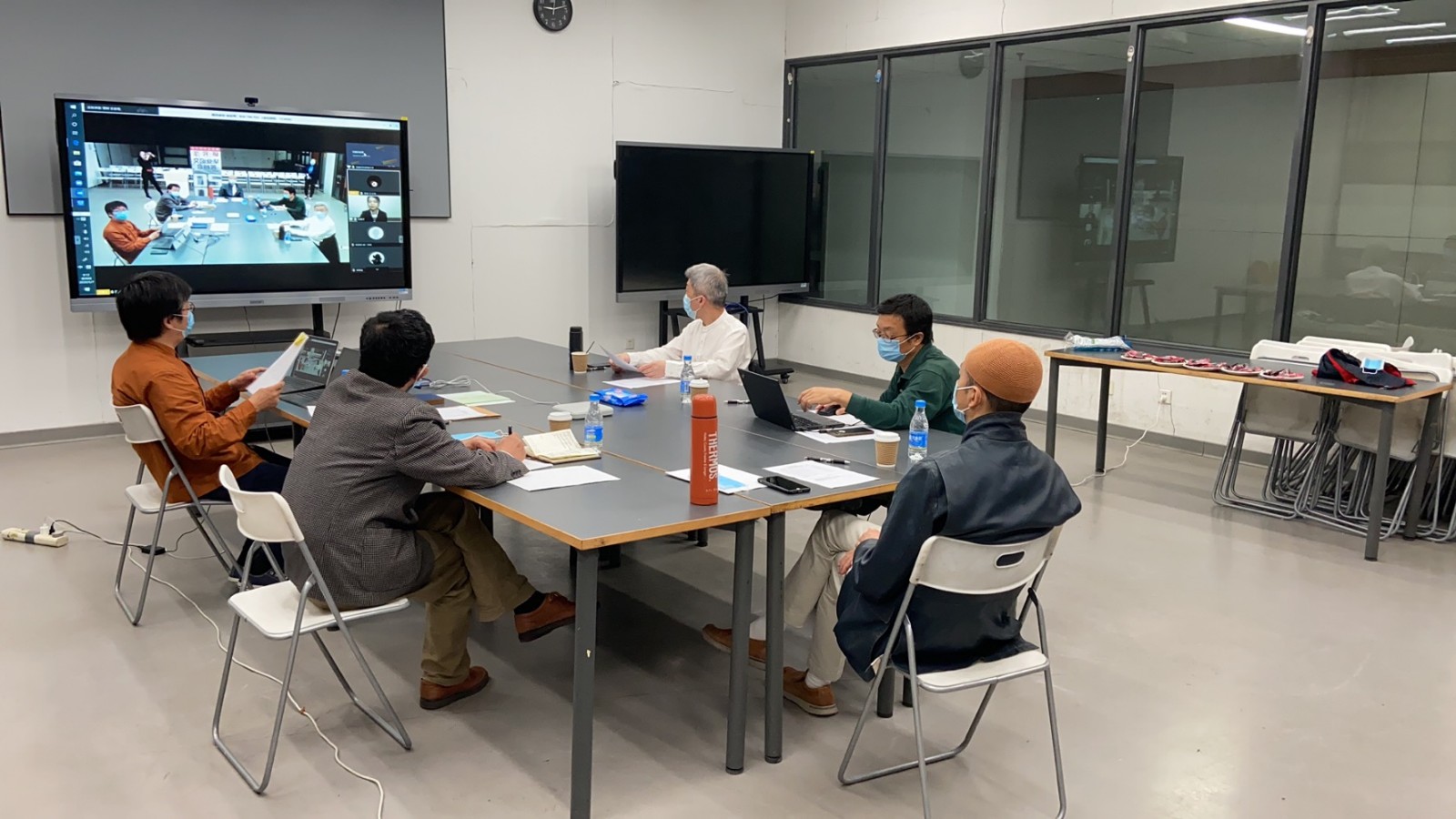
Virtual defense of postgraduate students, Department of Ceramic Design
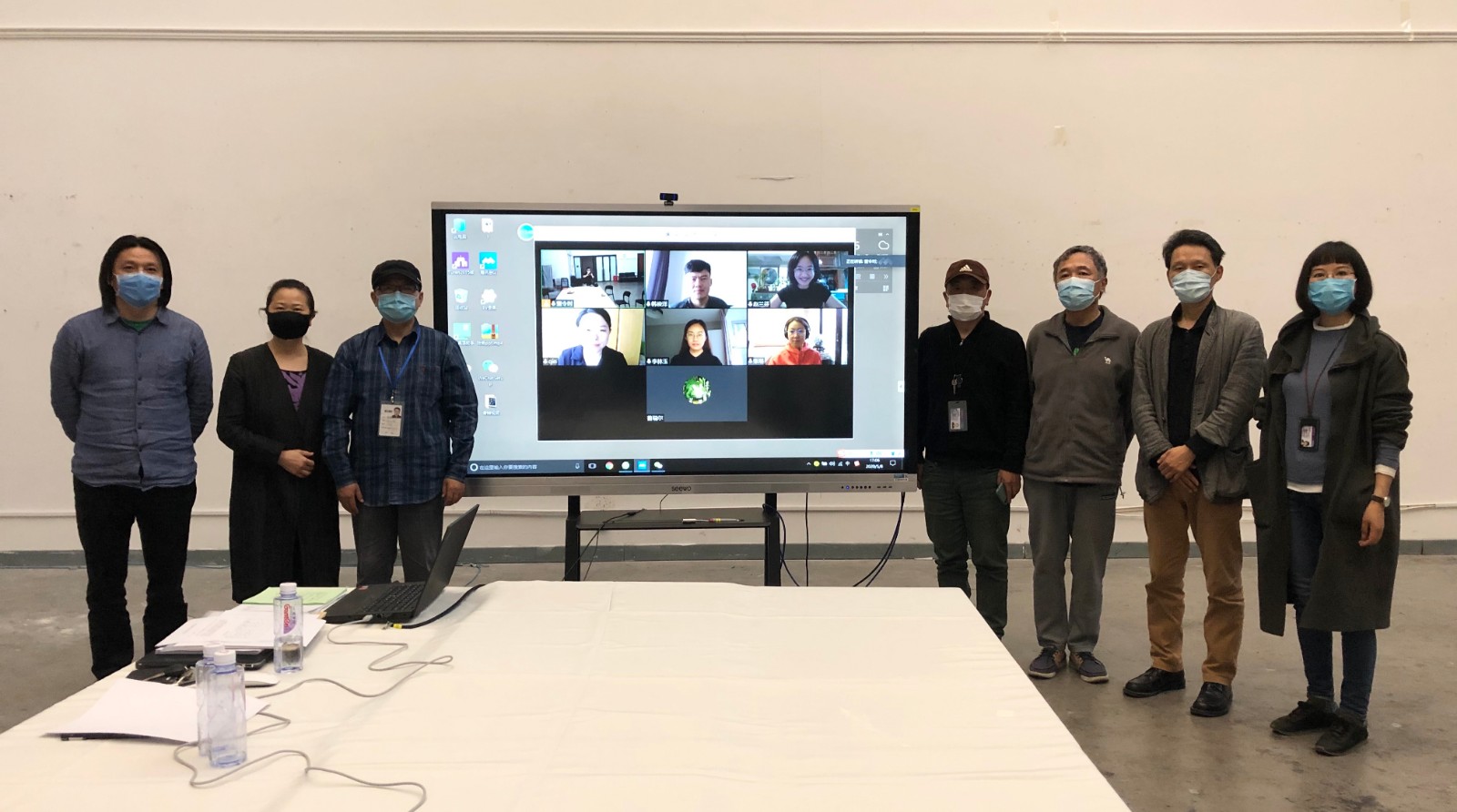
Virtual defense of postgraduate students, Department of Painting
As responsible citizens, AADTHU postgraduate students also paid great attention to the COVID-19 epidemic and expressed their thoughts and concerns about the epidemic in their works in addition to focusing on such subjects as daily life, real-life problems, environmental protection, and sustainable development.
The thesis defense committee gave professional and in-depth comments and suggestions on the students' theses, research direction and projects. As for the research direction, students were encouraged to pay close attention to daily life and practicality and gain an empathic understanding of the "pain points" they are trying to solve. They also gave suggestions on how to better present projects online. The academic atmosphere remained strong as the thesis defense committee members did not loosen their requirements because of the epidemic or the online format. However, in order to help the students relax and adapt to the online defense process, the committee members encouraged students in their own way. After the announcement of the results, the committee members and the students took group photos by using the video conferencing app to preserve their precious memories of this special defense experience.
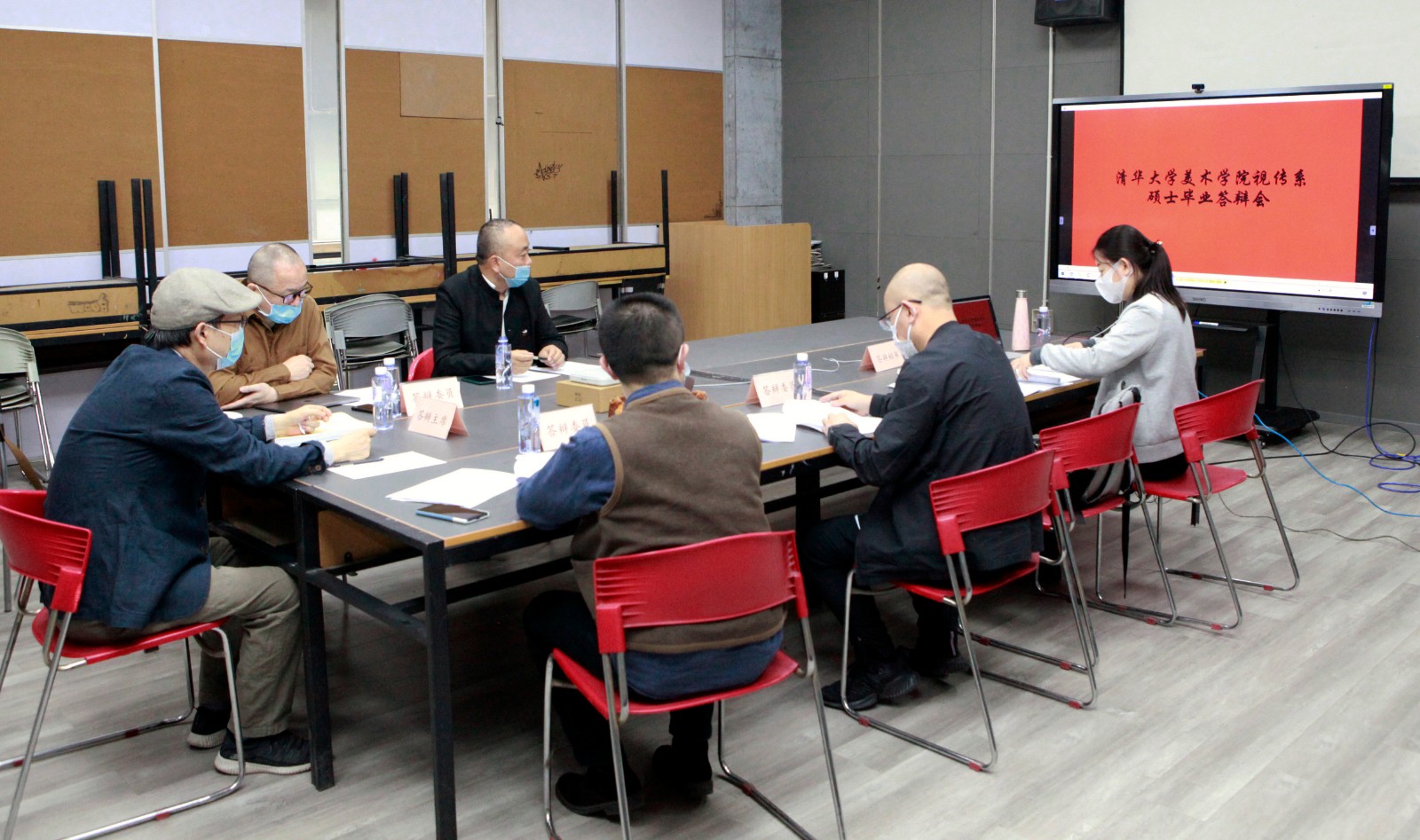
Online defense of postgraduate students of the Department of Visual Communication
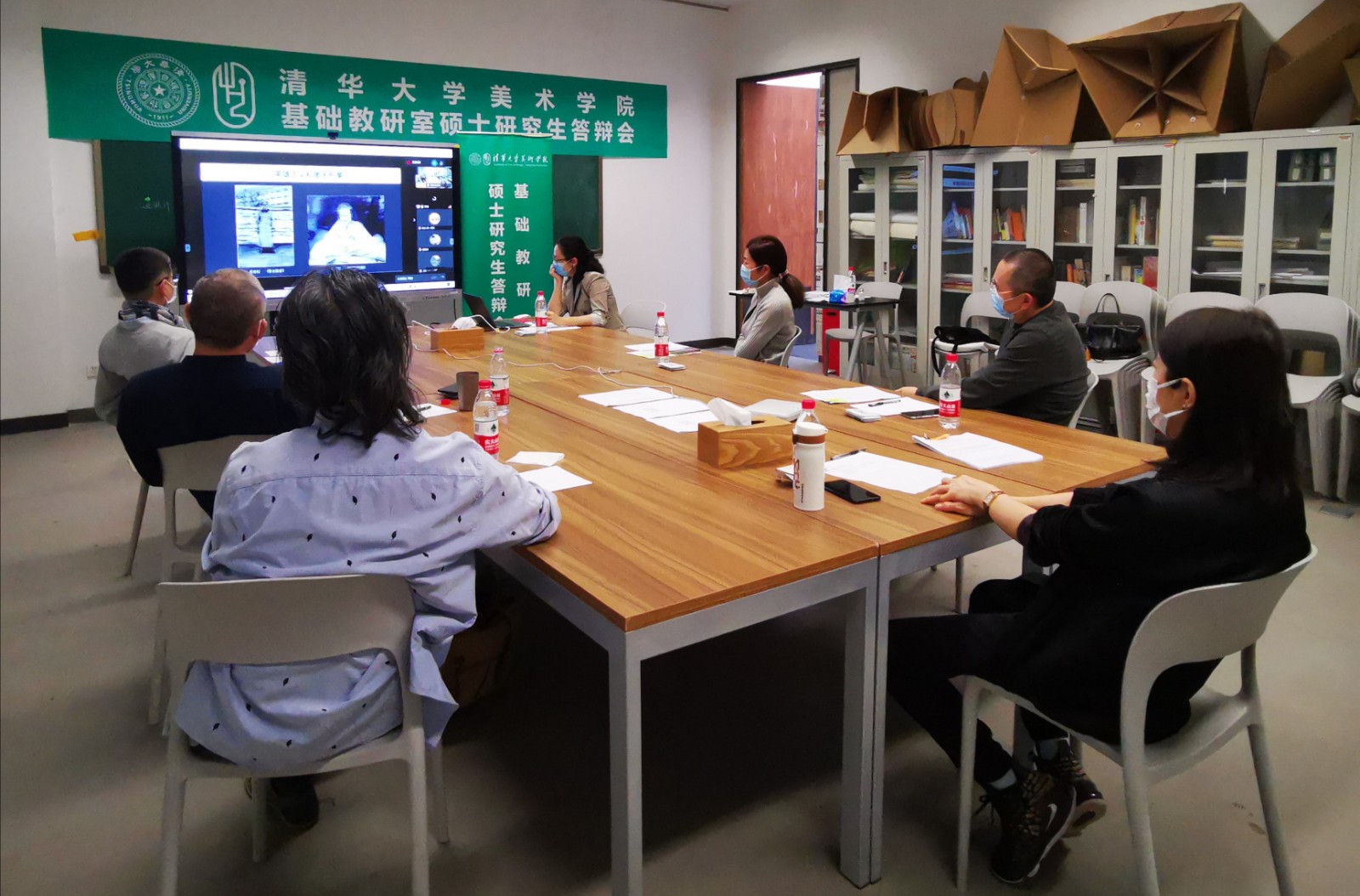
Online defense of postgraduate students of the Basic Teaching & Research Group
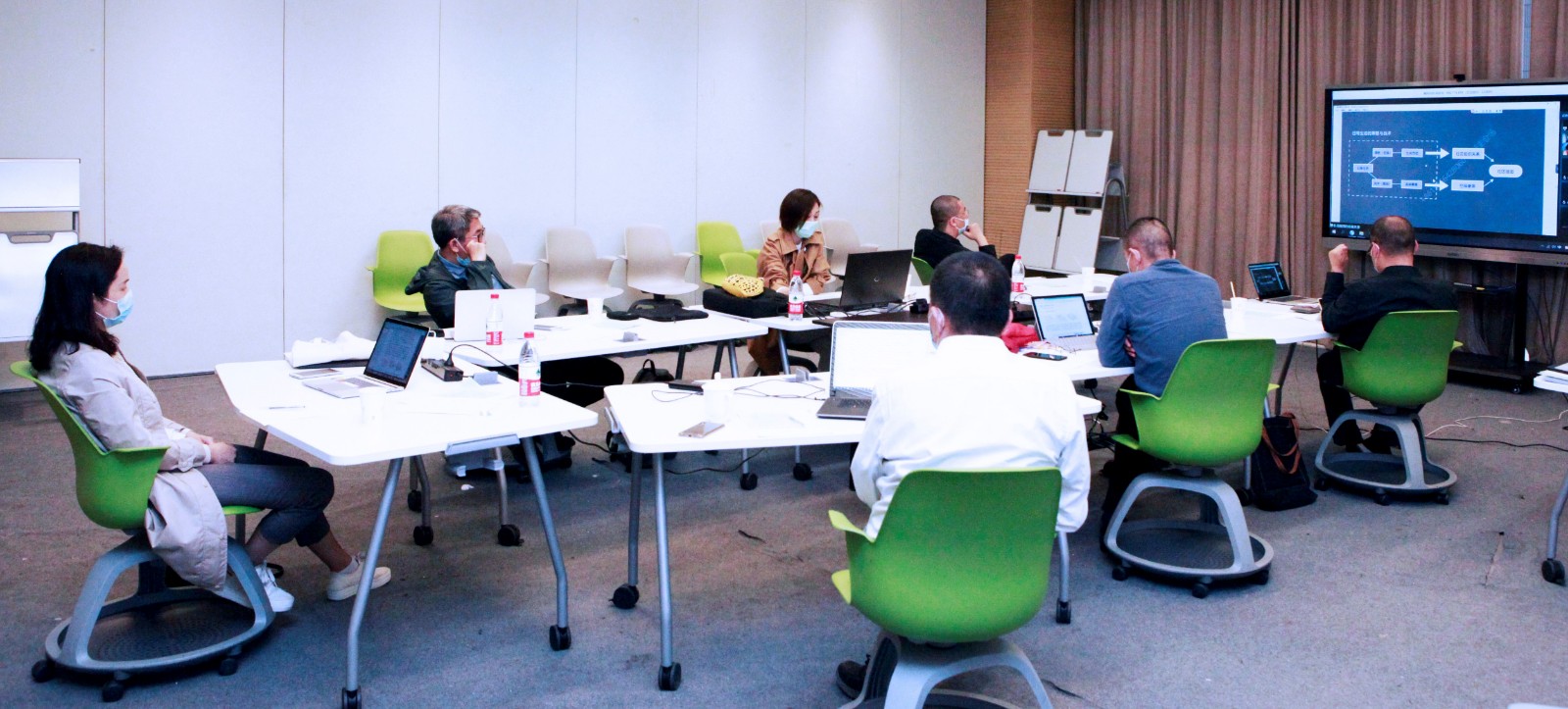
Online defense of postgraduate students of the Department of Environmental Design
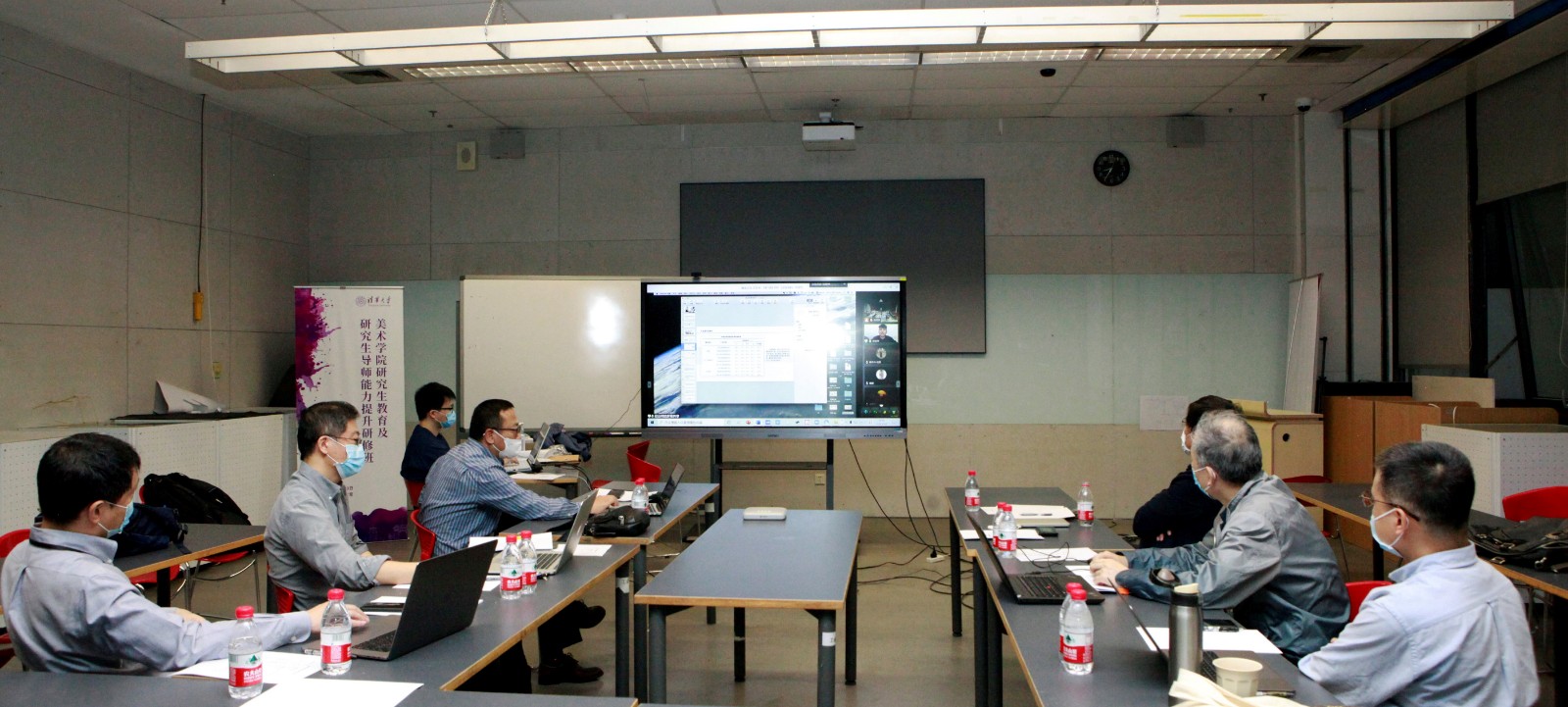
Online defense of postgraduate students of the Department of Industrial Design
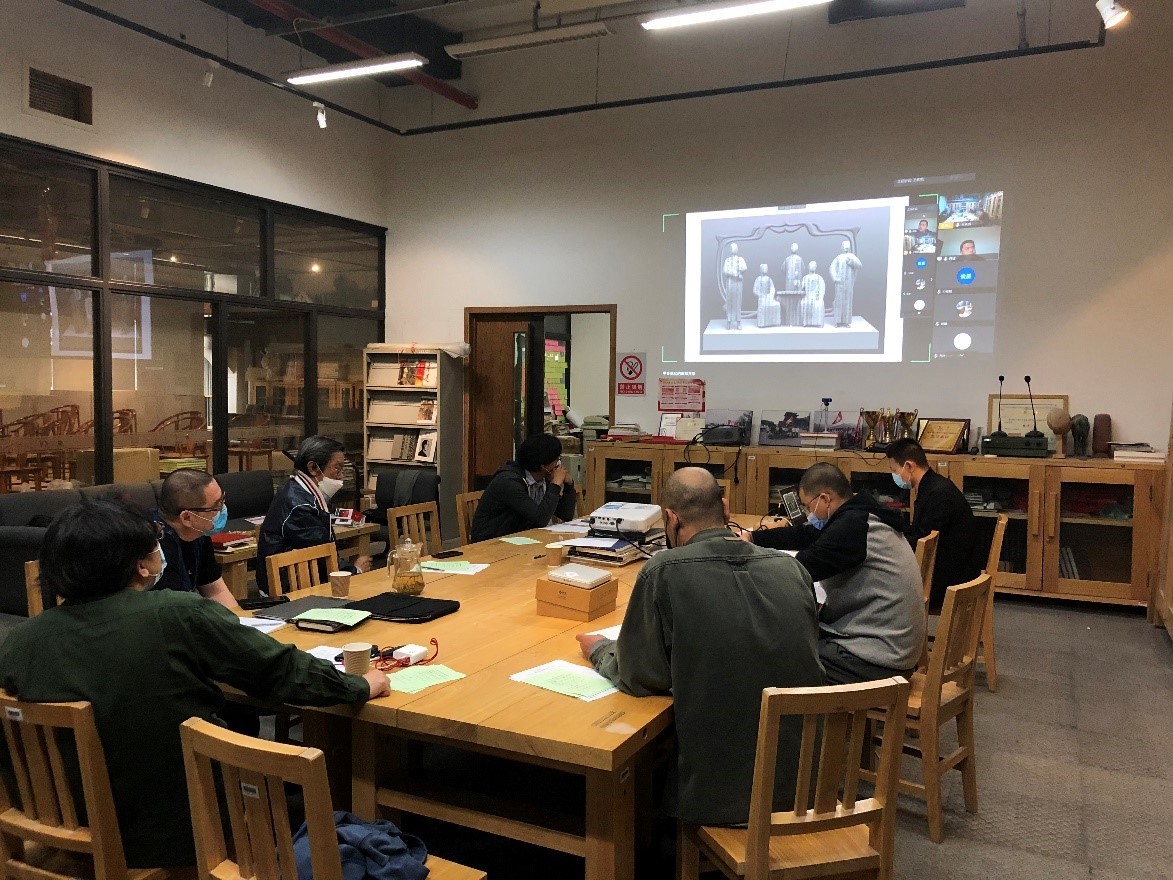
Online defense of postgraduate students of the Department of Sculpture
In order to ensure the smooth progress of the online defenses during the COVID-19 epidemic so that more than 170 postgraduate students could present their findings online, the Academy's Academic Affairs Office and departments, offices and project teams had carefully prepared for the defenses. Under the guidance of the Graduate School of the Academy, the Academic Affairs Office had put forward specific requirements and formulated a plan for online thesis defenses according to the relevant documents and requirements of the Graduate School. They refined the defense procedures and prepared documents that were required to be submitted to the defense committee. Yang Dongjiang, Deputy Dean of the Academy, and Zhang Gan, Chair of the Master's Degree Subcommittee, oversaw the preparation of the defenses and approved the required materials in accordance with relevant requirements.
In addition to training organized by the Graduate School, the Academic Affairs Office had organized training for the secretaries of defense of the Academy. A WeChat group was also created to coordinate the work and provide guidance and training on critical operations in the defense process. All departments, offices, and project teams tested the networking equipment and software that would be used in the video conferences three days before the event. All the postgraduate students who planned to defend their theses were required to test their devices and software for presentation in advance. The staff of the Academic Affairs Office and technicians from the Academy's property management center were present throughout the entire process to provide support when necessary. According to the requirements of the epidemic prevention and control authority, the Academy's property management center disinfected the 17 physical venues and provided technical support. The Academic Affairs Office had also prepared a backup venue.
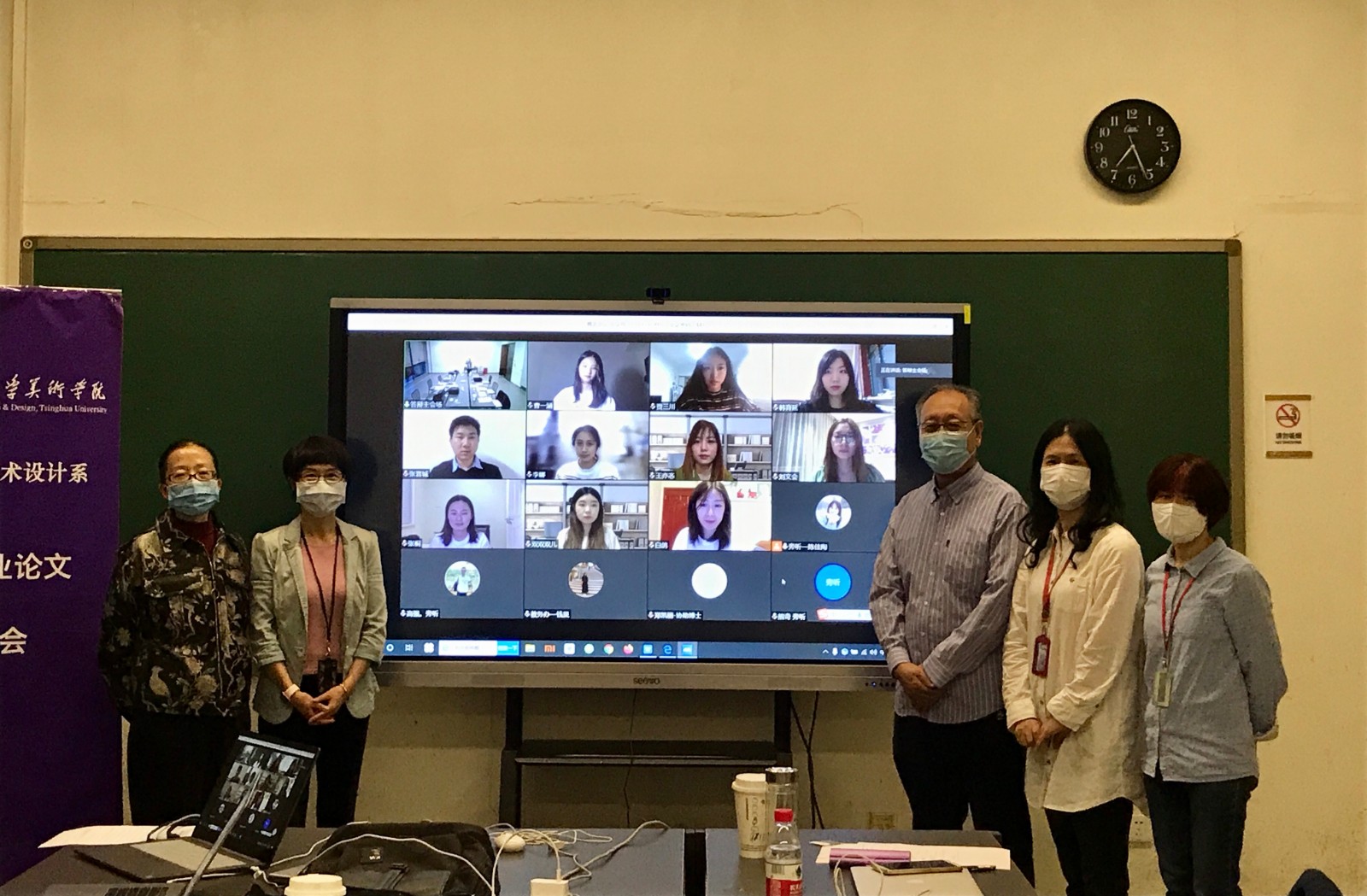
Group photo at the virtual event, Department of Textile & Fashion Design
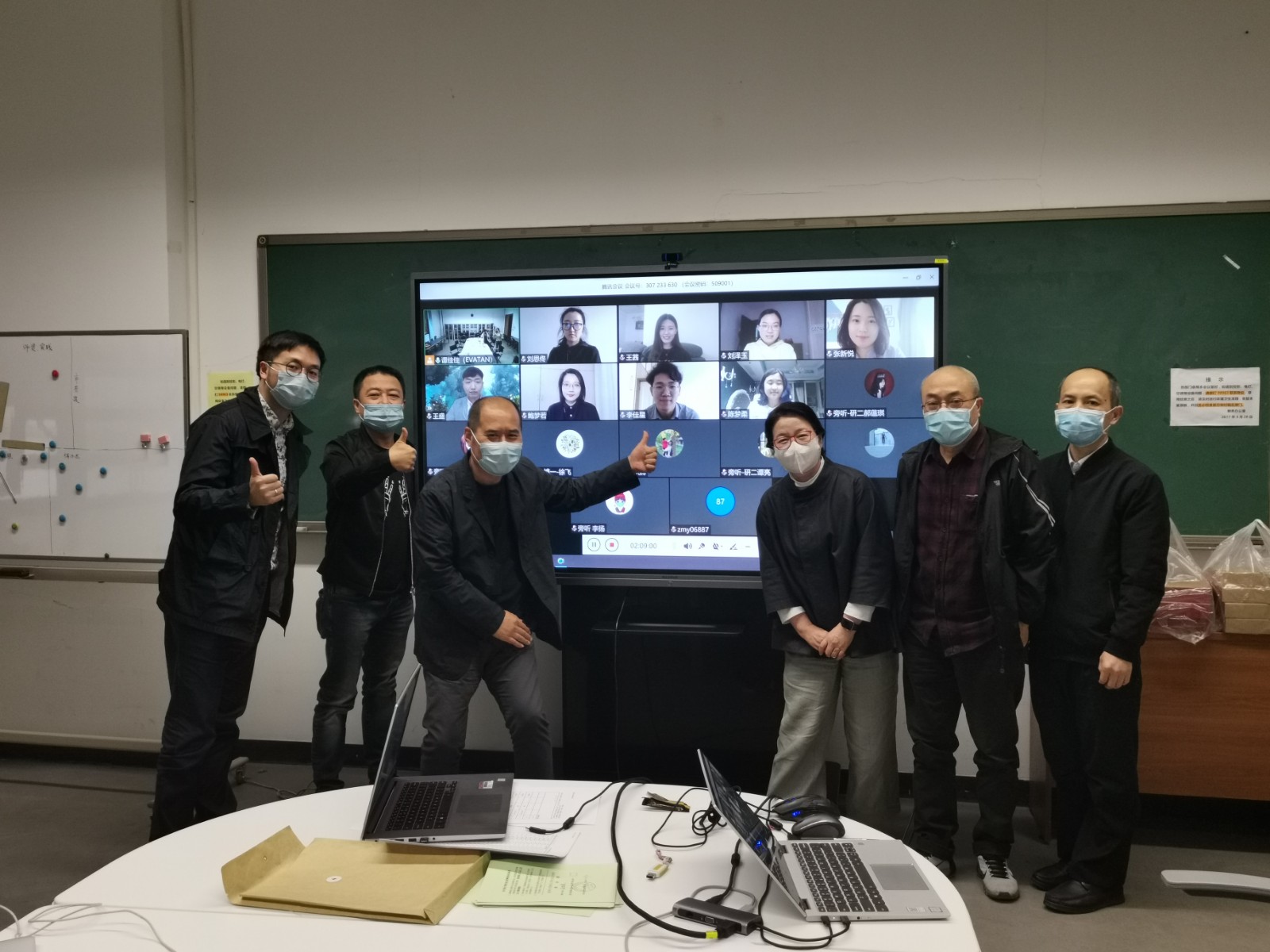
Group photo at the virtual event, Postgraduate Program of Science Popularization Creativity and Design
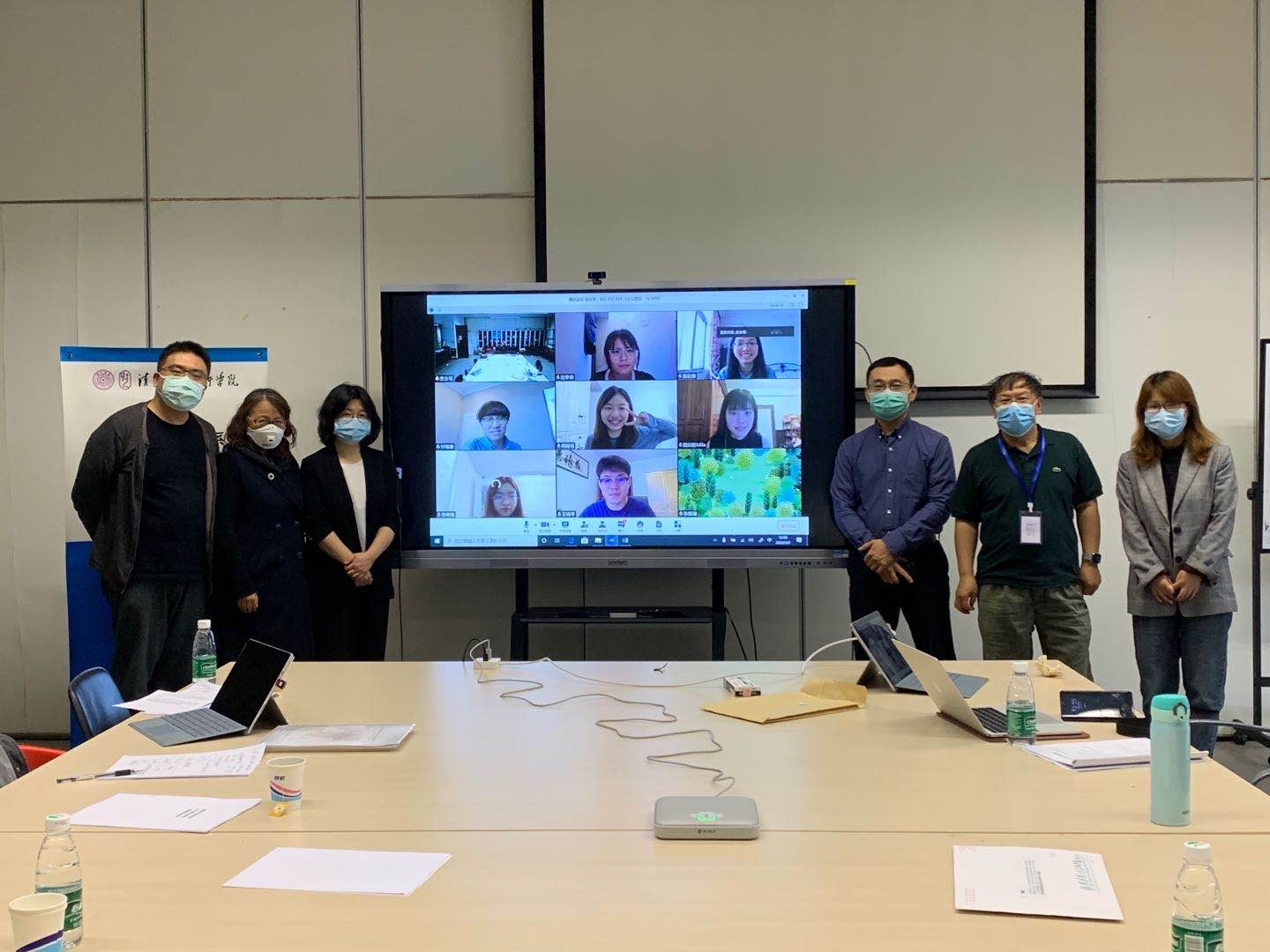
Group photo at the virtual event, Department of Information Art & Design
The defenses of all groups were recorded according to the requirements of the university. In addition to on-site patrolling, staff members of the Academic Affairs Office were present in each video conference to assist in maintaining the order of the venue or solving problems, keep track of the on-site situation, ensure the smooth progress of the defenses, and promptly remind the participants of matters that should be noticed.
Public access to the virtual event was allowed. More than 100 teachers and students watched the defenses as an audience. They were required to use their real names and obtain approval before they attended the online defenses. They were also required to indicate their presence as an audience on screen to facilitate verification. The meticulous and comprehensive preparations were the key to the success of the online defenses.
Source: Academic Affairs Office of the Academy of Arts & Design
Editor: Zhao Ruohan

